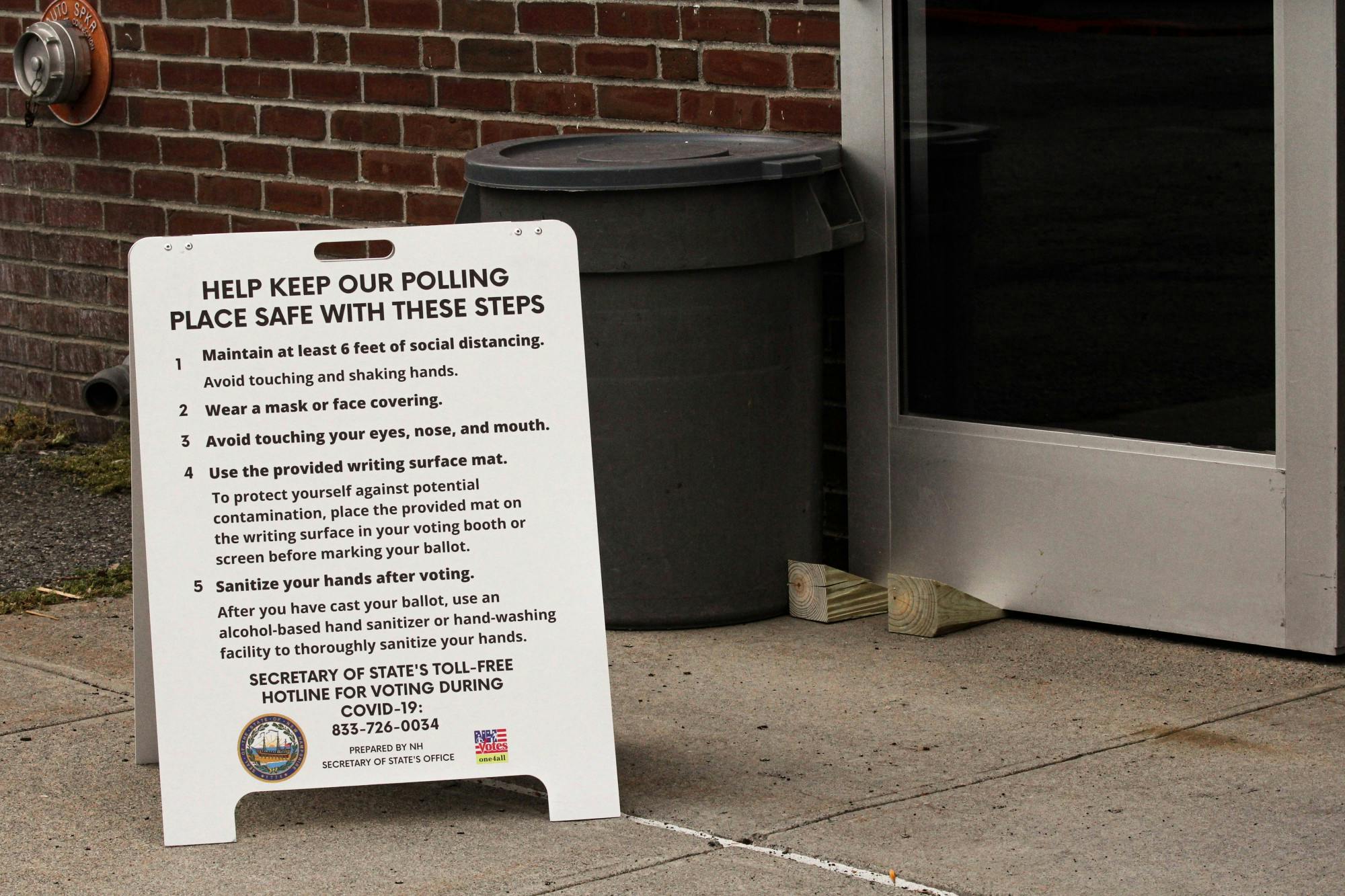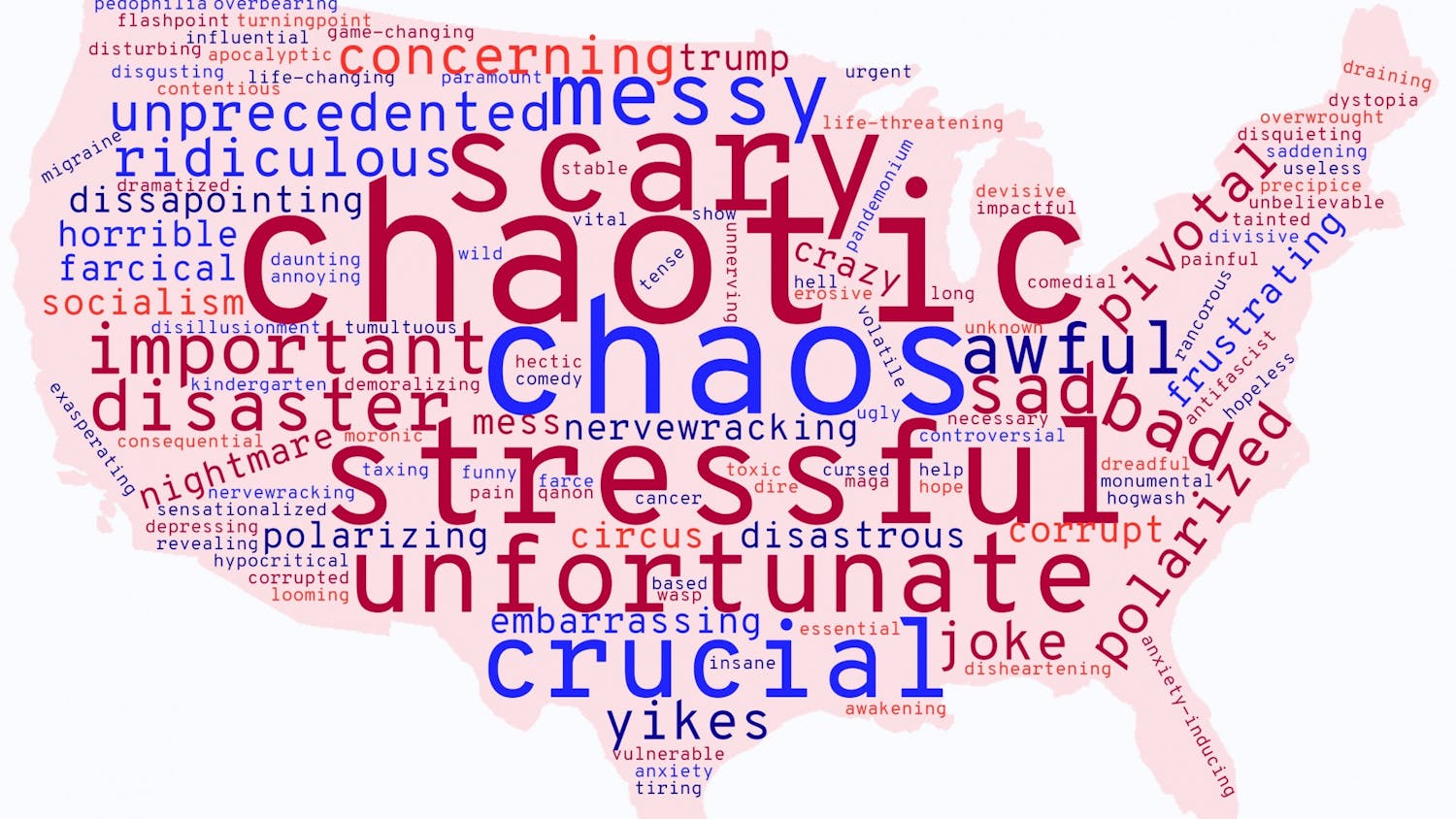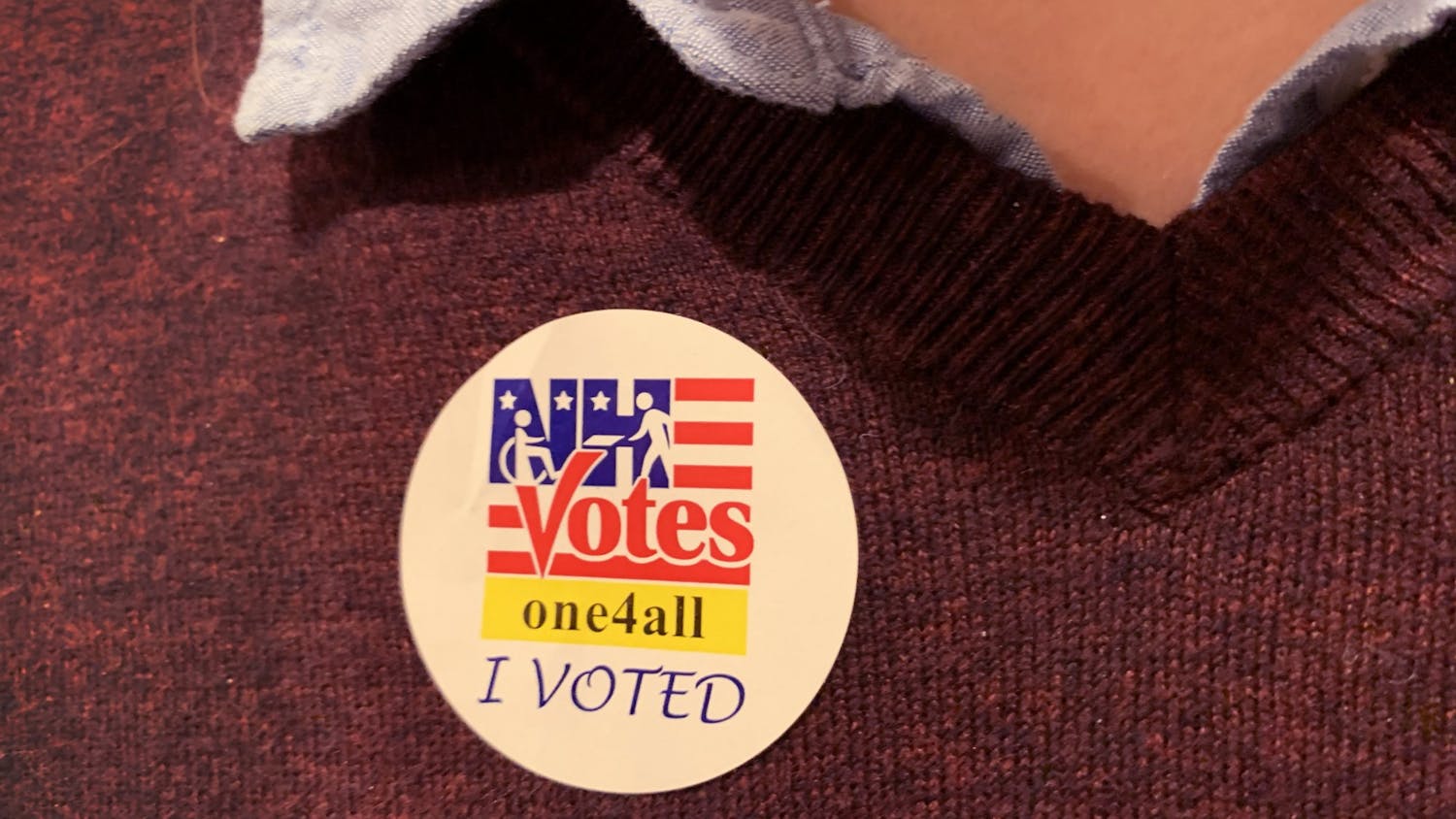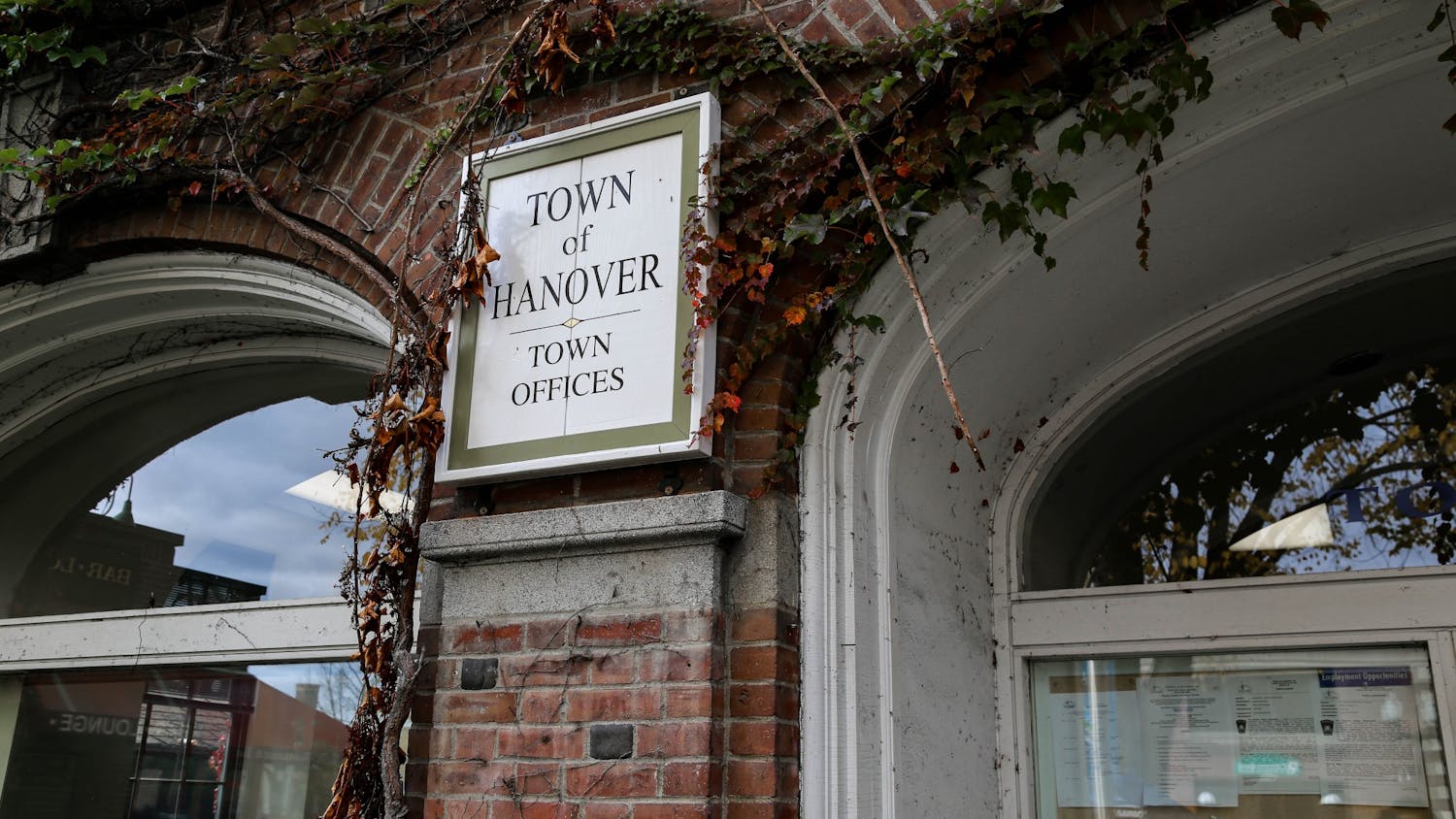As COVID-19 cases rise across the region, voters in Hanover and neighboring towns can expect a different experience at polling stations this Election Day. Despite the need for pandemic-related precautions, election officials are optimistic that the thousands of absentee ballots already cast will make for a manageable day at the polls.
Reminders of the ongoing pandemic will be everywhere, including mask requirements, outdoor voting, temperature checks and socially distanced lines. Voters in Hanover will vote at Leverone Field House, a larger space with better ventilation than the usual Hanover High School polling station, according to Hanover town moderator Jeremy Eggleton, who will oversee the polls on Election Day. Additionally, voters will have their temperatures checked and will be asked to sanitize their hands and wear a mask while in Leverone.
The town’s “very successful primary” on Sept. 8 bodes well for the general election, Eggleton noted.
“The primary was a nice test run, but everything went very smoothly,” Eggleton said. “There are always tweaks that you come to appreciate after you put a plan into effect … but broadly speaking, we’re going to be doing the same thing that we did in September.”
Voters in Norwich will go to their standard voting location at Tracy Hall but will fill out their ballots outdoors “on the back sidewalk,” Norwich town clerk Bonnie Munday said. She does not expect issues with social distancing or long lines.
In Lebanon, voters are designated to vote in person at one of three wards on Election Day: Ward 1 at the Kilton Public Library in West Lebanon, Ward 2 at the United Methodist Church in Lebanon and Ward 3 at the Ava Gallery and Art Center in Lebanon.
Like Hanover and the state of Vermont, the city of Lebanon has a mandatory mask ordinance in effect, Lebanon city clerk Kristin Kenniston said. All of the polling places will also be equipped with sneeze guards, extra masks, hand sanitizer and single-use pens.
Should a voter walk into a polling place maskless, they can vote away from other voters and poll workers. In Lebanon and Hanover, voters who refuse to wear a mask or are unable to because of a medical condition will be able to vote outside or in a different room. Eggleton said that anyone who has a high temperature will be asked to vote separately as well.
“Nobody gets turned away from the polls,” Eggleton said.
Munday also said a separate area will be available for maskless Norwich voters, but she does not expect it to become an issue because of social pressure to wear masks.
“In all honesty, I don’t think I’d have to say a whole lot,” she said. “I think most of the people around them would have enough to say.”
Eggleton, Kenniston and Munday all indicated that they had been able to find enough volunteers to staff polling stations. Eggleton said that because election volunteers are typically older — and thus more vulnerable to COVID-19 — Hanover reached out to local parent groups and “drummed up real interest from moms and dads in their thirties, forties and early fifties.”
“It’s been immensely successful,” he said. “We have more volunteers this year than we’ve ever had.”
Lebanon also has seen no shortage of volunteers — Kenniston said that Lebanon “got more volunteers than [it] could ever possibly use.” In Norwich, the town’s 12 justices of the peace and several volunteers will staff the polls and remind voters about social distancing while in line.
Absent from the polls will be thousands of Upper Valley residents who voted absentee this election. New Hampshire allowed voters to list the COVID-19 pandemic as a reason for requesting an absentee ballot, and Vermont mailed a ballot to every registered voter.
The increase in absentee voting is not expected to slow the counting of ballots. Both states have allowed some preprocessing — opening envelopes, sorting and checking signatures — of absentee ballots. Vermont towns were allowed to begin preprocessing 30 days before the election, while Lebanon began on Oct. 30 and Hanover on Oct. 31.
Both Eggleton and Munday said that they expect that preliminary results for Hanover and Norwich, respectively, will be posted the night of Nov. 3, within a few hours of polls closing at 7 p.m.
Eggleton said that Hanover made a conscious effort to promote absentee voting.
“For [voters’] safety, and for the safety of poll workers, we wanted people to vote absentee,” he said.
The town had received around 4,000 absentee ballots as of Oct. 29. An additional 2,000 to 3,000 voters are expected on Election Day. On Oct. 31, Eggleton tweeted that he expects a total of around 9,000 Hanover voters.
He also noted that the town preprocessed 4,280 absentee ballots on Oct. 31 alone. The town was able to identify 11 disqualified ballots and get in contact with at least seven of those voters, to inform them of their disqualified ballots and confirm they would recast ballots on either Nov. 2 or 3.
“There is a real chance every absentee ballot we receive will be valid. Which is simply amazing,” he wrote in the tweet.
Munday said on Oct. 29 that over 2,000 absentee ballots had been returned, out of around 3,000 sent out in Norwich, which she called a “phenomenal response.” She said she would be “surprised” if more than 600 voters showed up in person on Election Day.
“People here have been pretty awesome about recognizing that we are in the midst of a pandemic,” she said.
Lebanon is expecting a larger proportion of in-person voters, according to Kenniston. She said she expects at least half of the voter turnout in Lebanon to be in person and estimated that around 4,000 people will have voted via absentee ballot by Election Day.
Hanover placed a special emphasis on encouraging Dartmouth students to vote absentee, Eggleton said, because students seeking to register to vote on Election Day can create a “bottleneck” and lead to delays. Student Assembly organized four voting drives in October where students could register to vote and “vote early” — meaning request, fill out and return an absentee ballot all in one visit. SA vice president Jonathan Briffault ’21 called the drives a “smashing success,” estimating that they registered several hundred students.
“We basically overenrolled every single event. We had more people show up than we expected — we had waiting lists and waiting lines that we weren’t necessarily expecting,” Briffault said.
Rachel Florman ’21, a campus intern for the New Hampshire Democratic Party, said that despite the registration events, she still expects a “significant influx of student voters on Election Day,” calling voting in person a “ritual” for some.

Kristin Chapman ’24 is an English major and Spanish minor from Rye, New York. She currently serves as the editor-in-chief and previously wrote and edited for the News section. In her free time, she enjoys reading books, running, hiking and doing yoga.




